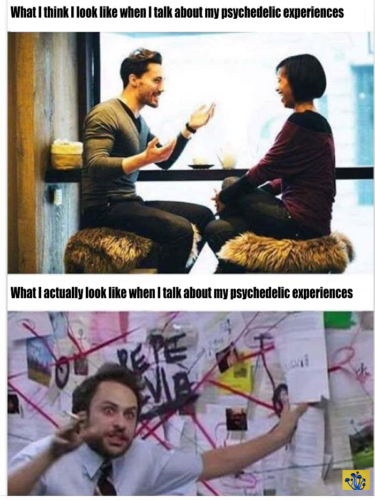
Whereas the Abrahamist worships his genital-mutilating Big Man in the Sky and the Satanist worships his personification of the adversary, Luciferians don’t seem to make a big thing out of worshipping any Lucifer figure. Nonetheless, Luciferians are entirely capable of comprehending and appreciating the concept of the divine. So what do they worship?
The word ‘Lucifer’ is usually thought of as a proper noun, but its original usage was as a title. More specifically, Lucifer means ‘bringer of light’. It was once the title given to the King of Babylon, and like everything religious, it has an exoteric and an esoteric meaning.
The exoteric meaning ties into the sun worship that is closely related to the religious sentiment in primitive man.
When the Sun starts sinking in the sky after the Summer Solstice the natural reaction for a human bereft of knowledge is fear. It seems like the world is dying as it gets colder and darker and all signs of life diminish. It feels like one has been abandoned by God, and if one is superstitious some of that fear might be mixed with guilt and blame.
So when the Sun returns after the Winter Solstice the natural reaction is one of incredible joy, as if God had shifted attitude from hatred to love. With the Spring comes new life, more light, more warmth, and everywhere there is joy and good cheer (this is, incidentally why Christmas, the major Western festival, is celebrated at the same time as the return of the Sun in the Northern Hemisphere).
Any early ruler opportunistic enough could easily convince the people around them that it was the ruler who was responsible for the return of the Sun, and only by treating that ruler with sufficient respect and obedience would the Sun return. This is the reason why the God-King model was so prevalent. Hence, the King of Babylon was given the title ‘Lucifer’ out of respect for that King being credited with the return of the Sun after the Winter Solstice.
The esoteric meaning is related, but different. In the esoteric sense, Lucifer refers to that impulse within humans that drives them to seek out the light of metaphysical knowledge and then carry it back to the rest of humanity to enlighten them as well. To this end, Lucifer has taken taken many forms in popular culture, the next most famous of which might be Prometheus.
Lucifer is not really a personage in this sense either, because anyone is capable of embodying that impulse at the right time in their lives. In this sense, Lucifer is someone that the individual becomes as they harness their own will to bring light into the world. Lucifer can therefore just as well be manifested by the worshipper as sought out in the external world, as the precise locus of this sentiment is not relevant.
In other words, Luciferianism is a continuation of the same shamanic tradition that led to human mastery of fire, which led to being able to cook food, which led to effectively being able to pre-digest food outside of the body, making us far more efficient, which meant that we had surplus energy that was able to be used for brain development, which led to humans being able to differentiate ourselves meaningfully from the other great apes – a kind of apotheosis of the species.
This impulse is responsible, in the eyes of the Luciferian, for most of what’s good in this world. All medical, scientific, philosophical and technological advancements (and all the human misery alleviated by them) can be attributed to it.
What is that impulse that leads a person to understand how to master fire and its application, and how to distill this mastery into principles simple enough that the mastery can be transmitted to others who might bear a similar impulse, so that they might progress ever further than before?
It’s not easy to describe precisely what this impulse is or from where it might come, but this is what the Luciferian holds in highest regard. This suggests that ‘worship’ is possibly the wrong word to use, because it implies a degree of loss of reason, while the Luciferian venerates something akin to that ability to reason (or, at least, the will to be able to reason and enlighten).
When the Abrahamists subverted the Roman Empire and perverted all truth, one of the first things they did was to destroy all the wisdom inherent in the plentiful Roman mystery cults, which had themselves descended from the Greek mystery cults such as the one around Eleusis.
In the Eleusinian Mysteries, participants drank something called a ‘kykeon’, which was a mix of a variety of intoxicating substances, one of which was believed to have been a strained tea made of psilocybin mushrooms. Consuming this kykeon, only ever done in ritual secrecy, had the effect of propelling the whole congregation into hyperspace. That so many of them did so, and that so many returned from hyperspace and returned to everyday society enlightened is arguably the reason why the Golden Age of Greco-Roman thought took place.
When the Abrahamists destroyed this culture in an effort to enslave the population, they made taboo all the things associated with it. This is the reason why mainstream Abrahamist culture hates women (the Eleusinian Mysteries were open to men and women equally), hates cosmopolitanism (they were open to anyone who spoke Greek, regardless of ethnicity) and hates psychoactive substances (they dispensed their wisdom, at least in part, through the ritual alteration of consciousness).
The Luciferian could not care less if wisdom is to be found in the mind of a woman, or a black man, or as a result of a drug-induced epiphany. Wisdom is wisdom, and it’s enough to venerate the light, and the methodologies that lead to the light, for their own sake.




